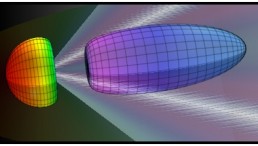Recent studies have shown the possibility that the venom of snakes could be a great help for human who suffers from heart diseases. Pit vipers may look scary, but its medicinal value to treat heart patients is immeasurable.
A new research found that the venom of the Wagler pit viper is an effective component and may end up the conditions of patients who are suffering from heart failures, HealthDay reported. It was some Taiwanese scientists who discovered the effectivity of the snakes' venom in mice. Thus, the researchers believe that it would also bring the same medicinal value for humans in the coming years.
According to News Channel 13, the protein content found in the venom of snakes have prevented blood clotting in mice without extensive bleeding. It is because bleeding becomes the main problem and side effect in the currently available antiplatelet drugs usually given to patients with heart conditions. However, the idea remains a proposal for the drug has yet to be tested in humans.
Co-lead author and professor at the Genomics Center School of Pharmacy at National Taiwan University, Y. Jane Tseng said in her email, "As a scientist, it is always intriguing to learn from our mother nature. Ever since there was a long history of the use of snake venom as a tool in studying blood clotting mechanism."
Furthermore, another co-lead author, the professor at the Graduate Institute of Pharmacology at National Taiwan University noted that some unfamiliar snake with venom is neutotoxic, which means poisonous to the brain. While there is also some snake venom which is hemorrhagic or greatly affects blood coagulation as well as platelet function profoundly.
The venom of the Wragler's pit viper snake or Tropidolaemus Wagleri contains glycoprotein VI, a kind of protein that sits right on the surface of platelets. The glycoprotein VI makes the trowaglerix to stimulates platelets and form the blood clot. Thus, with the help of that kind of protein in the snake venom, blood cells stimulation for heart patients or platelets can be prevented to form clots which lead to heart attack or stroke.












![Sat-Nav in Space: Best Route Between Two Worlds Calculated Using 'Knot Theory' [Study]](https://1721181113.rsc.cdn77.org/data/thumbs/full/53194/258/146/50/40/sat-nav-in-space-best-route-between-two-worlds-calculated-using-knot-theory-study.png)

